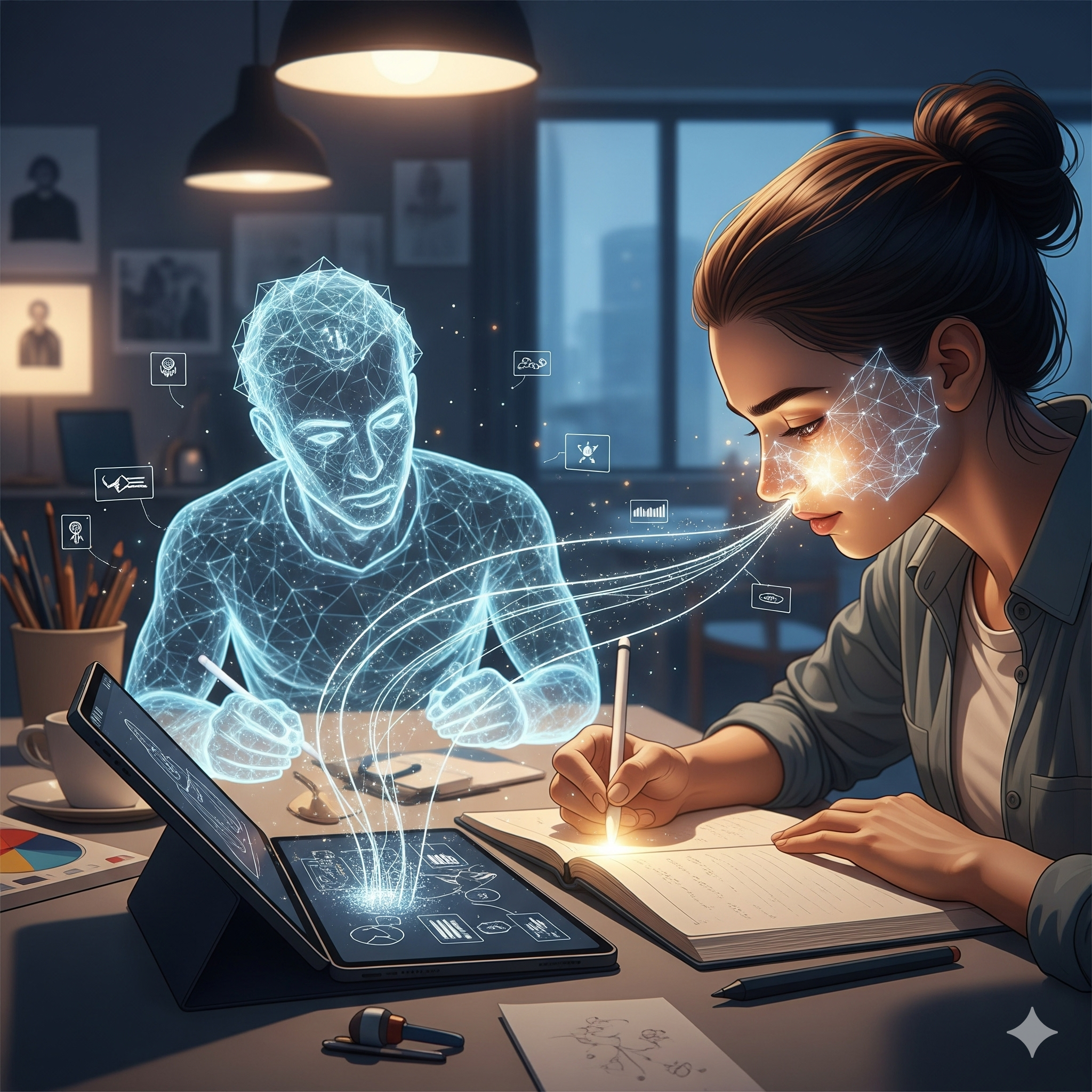AI Didn't Replace Me—It Amplified Me
I learned to write long before computers entered my life. My earliest essays were handwritten on lined paper, smudged with eraser marks and ink blots. Letters to friends were drafted on cream-colored stationery, folded carefully, sometimes perfumed if I wanted to make an impression. Handwriting wasn't just communication—it was identity. The slant of your letters, the speed of your script, the way you dotted your i's—it was uniquely, unmistakably yours.
Then came the typewriter. I can still hear the satisfying clack of the keys, the sharp ding of the carriage return, the way one typo meant starting an entire page over. Typewriting demanded precision and discipline. It felt professional, authoritative even, but it wasn't forgiving. Every word had to be right the first time.
When word processors arrived in my world, they felt like nothing short of a miracle. I could rearrange whole sentences without punishment, save drafts without wasting paper, and experiment without fear of ruining hours of work. Spellcheck soon followed, and even that raised eyebrows at first. Was it "real writing" if the computer caught your mistakes? Was it somehow cheating to let technology fix what you'd gotten wrong? Today, we don't question it. Spellcheck simply makes us more efficient—and more confident.
And then there were digital writing assistants. Those early attempts at automated help popped up in word processors, offering suggestions with varying degrees of usefulness. Annoying at times? Absolutely. But in hindsight, they were a glimpse of the future: some of the first attempts to give writers a digital companion. Imperfect and intrusive, sure—but they signaled something important. Writing didn't have to be a solitary act anymore.
Fast-forward to today, and I find myself working with AI writing tools across platforms and contexts. At first, I expected modest efficiency gains: faster drafts, cleaner phrasing, maybe some time saved on presentations. But what I discovered was something else entirely—a true creative partner. These AI tools weren't writing for me; they were surfacing ideas I hadn't considered, shaping rough outlines into coherent structure, and helping me bring to life what I was already thinking but struggling to articulate. It was like having a brilliant colleague who never got tired of brainstorming, never ran out of patience for iteration.
Ironically, one of the key messages I often share is this: AI is not here to take your job—it's here to be your BFF. And I believe it wholeheartedly. Yet outside those polished conference rooms, I notice something strange happening. People still whisper when they admit to using AI. "Don't tell anyone, but I ran this through an AI tool first." As if it were a shameful confession. As if AI-assisted writing were somehow dishonest, inauthentic, or fake.
Where does that stigma come from? Writing has always been intimately tied to identity and intellect. We celebrate the personal touch, the authenticity of a writer's voice, the idea that great writing emerges from some mysterious, wholly human creative process. That's why AI feels different from a calculator or photo editing software. Numbers are just numbers; images are expected to be retouched and manipulated. But words? Words feel sacred. They're supposed to come from the soul. So when technology enters the writing process, people fear it somehow dilutes that authenticity, makes it less "real."
But here's what I've come to understand: every tool we've embraced once carried exactly the same stigma. The calculator was condemned as "cheating" that would make students lazy and dependent. Spellcheck was dismissed as a crutch for poor writers. Even the humble eraser was controversial when it first appeared, criticized by educators for making mistakes too easy to hide, too tempting to ignore. Over time, though, we stopped debating the merits of the tool and started valuing the quality of the craft again.
For me, AI fits squarely in that historical lineage. Handwriting taught me self-expression and the physical connection between thought and word. The typewriter taught me discipline and precision. Word processors and spellcheck gave me freedom to experiment and the efficiency to iterate. Early digital assistants—however clunky—gave me my first taste of digital companionship in writing. And AI writing tools, today, give me speed, expanded creativity, and the chance to focus on what matters most: the ideas themselves, the stories I want to tell, the messages I need to share.
None of these tools replaced me as a writer. Each one amplified me, expanded what I could accomplish, freed me to think bigger and write better.
Maybe one day soon—sooner than we think—we'll stop whispering about AI writing the way our grandparents stopped hiding their calculators. We'll say it proudly: Yes, I worked with AI on this. It helped me think more clearly, write more efficiently, and bring my ideas to life faster than I ever could alone. Because in the end, the question isn't whether you used AI to help craft your words. The real question is far simpler, and far more important: What did you have to say in the first place?
The tool doesn't make the writer. The writer makes the tool.

